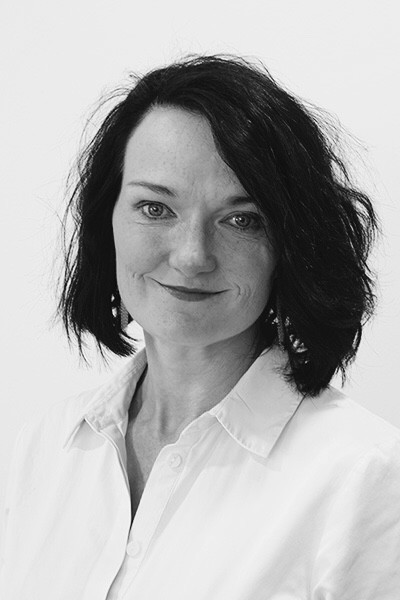Menopause in the project profession: supporting women at work

The fastest growing demographic of the UK workforce is women of menopausal age. Whether a woman is of menopausal age or not, 100% of women will experience the menopause and on average 90% feel their symptoms affect their ability to perform at work. As a result, up to 1 in 10 women leave their employment due to their menopause symptoms*.
I spoke to three women in the project profession about their experience of menopause in the workplace. Below we explore three different perspectives (post, mid and future menopause); what’s available so we understand menopause better; and what organisations can do to make a difference.
During your career, what menopausal surveys have any of your employers carried out and what did you think about them?
Menopause surveys are the way in which a workplace can carry out an anonymous inquiry into the way women and people who experience menopause are supported in their workplace. Workplace surveys provide valuable guidance for workplace menopause policies.
Caroline Ojo, Project Management Consultant, WiPM SIG Chair, post menopause: There has never been a time in my career that any of my employers have carried out a survey relating to menopause however, raising more awareness is another progress for women in the work force. A survey is effective when it highlights, the problem and there is a solution as the outcome otherwise it becomes a tick box activity.
Rachel Jackson, Senior Planning Manager at Mace, mid menopause: I don’t recall every being asked to complete a menopause survey at any of the companies I’ve worked at. I think a regular survey would be an excellent idea. They would provide an anonymous voice for colleagues and present a true picture of the effectiveness of solutions currently in place, along with being a benchmark over time.
Vanessa Daque, Project Manager at Informa Plc, future menopause: I’ve never come across these surveys. Once I read about Japan implementing a week legal off period for women experiencing premenstrual syndrome, which is great. But we have so much work to do and awareness to spread about the menopause cycle as well. It’s not talked about enough.
What conversations did you have with your manager with regards to menopause and if you did not have any what was the reason?
CO: Menopause is not a topic I will bring up with my manager, I have worked in male dominated teams, where it would feel uneasy. Organisational culture determines how comfortable someone will feel about bringing up certain topics, especially in a male dominated environment. Bringing up such topics in conversation will flow easily where there is awareness and a supportive structure is in place.
RJ: I have never had a conversation with my manager with regards to menopause because I’ve always had male managers and not felt at ease to discuss such a personal matter. Additionally, my manager is often remote from the team I work in where my symptoms are evident and easier to understand.
For example, I sat in a one-to-one with a colleague recently, and I was completely blanking his name. He noticed I was unable to recall his name, so he pre-offered it. I was absolutely mortified, as I knew him well and felt my blankness came across as insulting. If there was more awareness and openness, it would help women going through menopause feel more comfortable without shame or embarrassment!
What do you think will improve the likelihood of you, and other women having a conversation with managers regarding menopause, when the time comes?
VD: I believe the movement and discussions by our WiPM SIG colleague, Rachel Jackson, and the British Menopause Society (who are engaging with our SIG), will open so many opportunities to make this possible for when I, and others, will be facing menopause. Having a more open conversation, with tangible actions on how best support a woman going through one of many, natural phases of life, will make it more comfortable and better in the long term.
CO: Organisations can do various things to make it better as well, for example: women’s health forum talks or women’s health champions that can cover topics on menopause, periods etc to raise awareness. It should also be included in private medical insurance policy so that employees feel supported without having to talk about it if they don’t want to. And including guidelines in work and life balance guides for employers and employees so that everyone knows what to look out for, and how to be supportive.
Have any of your employers carried out any of these things, or tried other solutions to mitigate the impact of menopause and support you? For example, a menopause policy, employee assistance, private medical insurance, menopause champions, etc.
CO: In terms of private medical insurance my employer had this but nothing specific to menopause.
RJ: I have observed health and safety talks, or ‘lunch ‘n’ learn’ events on menopause. Most of the companies I’ve worked at have a menopause policy and private medical insurance too. But I voice concern that despite the fact I’ve worked at companies which implement some of Caroline’s suggestions, working in a male dominated industry there is a lot of ‘talk the talk’ but not enough ‘walk the walk’. Many of the health and safety talks are targeted at women and in an industry dominated by men it would be helpful to get male colleagues more involved e.g. train line managers about symptoms, have a menopause champion, etc.
VD: At my work (which is a global organisation), individuals raise awareness by sharing their stories or advice on Portal, our internal website. Some internal networks host panels, for example, Women in Publishing, by Taylor & Francis of Informa Plc, hosted a series of ‘breaking the taboo’ events where menopause in the workplace was discussed. And Illuminate, Informa's colleague network, shared a document about ‘Menopause at work’ in which we can find data, symptoms, andropause (for males), effects of menopause at work, measurements to train line managers, details on how to create an open atmosphere for both women and men to talk about it, case studies and more.
The advice from the Vice President of Engagement Development and Inclusion is to speak to our local HR departments for specific advice. We’re also encouraged to use the intranet and take advantage of confidential support and services like EAP, and the Employees Assistance Programme which all permanent colleagues in all countries have free access to.
I’ve also recently spoken to the Chief Talent and People Officer and they are working on communications, including the chief's personal blog on menopause. The organisation have also signed up to the menopause pledge, made a commitment to the Wellbeing of Women, and they have already provided us with a wealth of tools.
If you want to learn more and get involved, get in touch with the Women in Project Management SIG.
*Data based on Peppyhealth.


3 comments
Log in to post a comment, or create an account if you don't have one already.
Excellent work, Rachel! Great awareness initiation for us at APM & WiPM. Looking forward to seeing more pledges and initiatives growing strong in our work environment!
Love this, such a sensitive subject - well handled. Thank you Rachel.
Great article! There is a lot more talk about menopause - or am I just noticing it because I'm perimenopausal?! There needs to be a greater shared understanding of the physical and mental impacts of hormone rollercoasters and deficits.